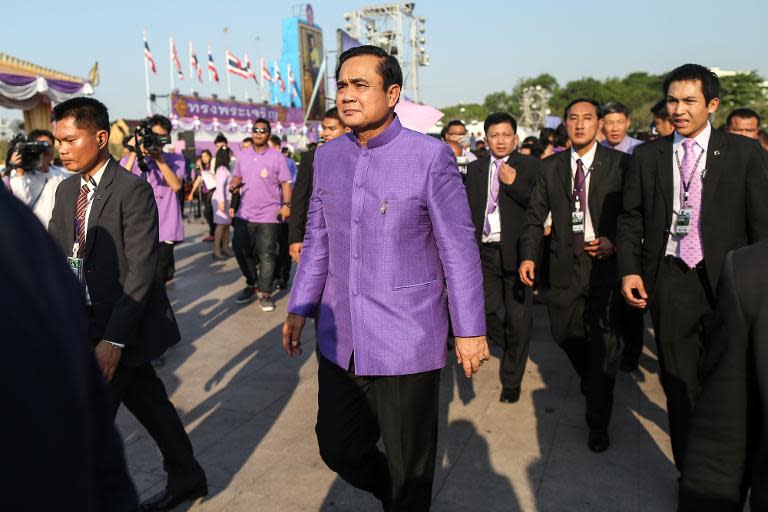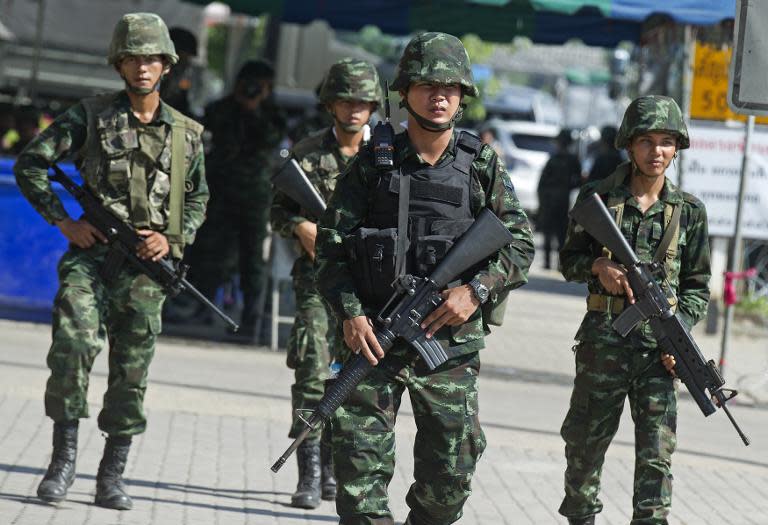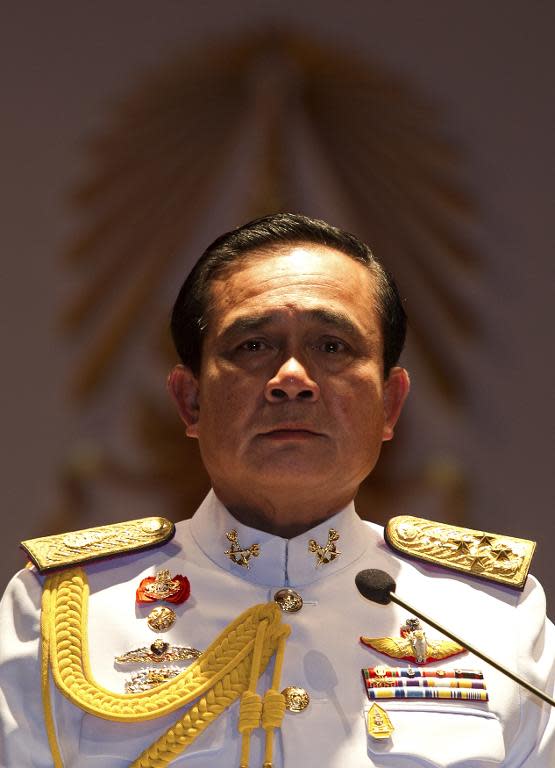US, UN lead criticism of Thai junta martial law replacement
The Thai junta's decision to lift martial law was denounced by critics Thursday as cosmetic, with Washington, the EU and the United Nations warning that replacement security measures would not loosen the military's grip on power. In an announcement late Wednesday Thailand's generals officially lifted martial law 10 months after seizing power in a coup. But the controversial law was replaced with a new executive order retaining sweeping powers for the military and junta chief Prayut Chan-O-Cha. Those measures were passed under Section 44 of the junta-written interim constitution, a controversial provision handing Prayut power to make any executive decision in the name of national security. The new order includes a continuance of a ban on political gatherings of more than five people, while the military retains the right to arrest, detain and prosecute people for national security crimes or those who fall foul of the country's strict royal defamation laws. A new rule also appears to deepen censorship of the media, by allowing military officers to stop the publication or presentation of any news they deem to be "causing fear or distorted information". - Worse than martial law - The UN's human rights chief Zeid Ra'ad Al Hussein described the new powers as "even more draconian" than martial law. He added he was "alarmed" by the move "which bestows unlimited powers on the current prime minister without any judicial oversight at all". A US State Department official said Washington expected the Thai military to end trials of civilians in military courts, detention without charge and to allow people to express their opinions freely. "We are concerned that moving to a security order under Article 44 will not accomplish any of these objectives," the official said. Those views were echoed by the European Union, which has repeatedly called for the restoration of democracy. "The replacement of martial law ... does not bring Thailand closer to democratic and accountable government," a spokesman for EU foreign policy chief Federica Mogerhini said in a statement. Thai analysts and critics pilloried the measures as martial law in all but name. "Section 44 is actually worse," constitutional scholar Khemthong Tonsakulrungruang of Bangkok's Chulalongkorn University told AFP, adding that the new order allows Prayut to execute key decisions without the oversight of a military court. "When they ask for the martial law to be lifted, what the public is really asking for is the return of basic rights and liberties to Thais. Prayut fails to understand that," he said. Political commentator Verapat Pariyawong described the move to replace martial law "with something even worse" as an "April Fool's day trick". - 'At military's own pace' - But the junta defended the order saying the potential remained for anti-coup protests to upset an uneasy peace imposed since the military power grab. "There have been movements from groups of people who lost power... groups of people who want to create disorder," Deputy Prime Minister Wissanu Krea-Ngam told reporters. "The lifting of martial law will ease concerns from the people and the international community." Thailand's generals had been under pressure from western allies, business and the tourism industry, which usually accounts for around 10 percent of GDP, to rescind the law. It will however remain in place in Muslim-majority southernmost provinces where a deadly insurgency has raged for years. The generals took over last May after months of often violent street protests that led to the ousting of Yingluck Shinawatra's democratically-elected government. It marked the latest chapter in a decade of political conflict broadly pitting Bangkok's middle classes and the royalist elite -- backed by parts of the military and judiciary -- against pro-Shinawatra urban working-class voters and farmers from the country's north. Prayut has vowed to return power to an elected civilian government, but only once reforms to tackle corruption and curb the power of political parties are codified in a new constitution. Critics say those reforms are aimed at neutering the power of the Shinawatras, whose parties have won every election since 2001.

 Yahoo Finance
Yahoo Finance 


